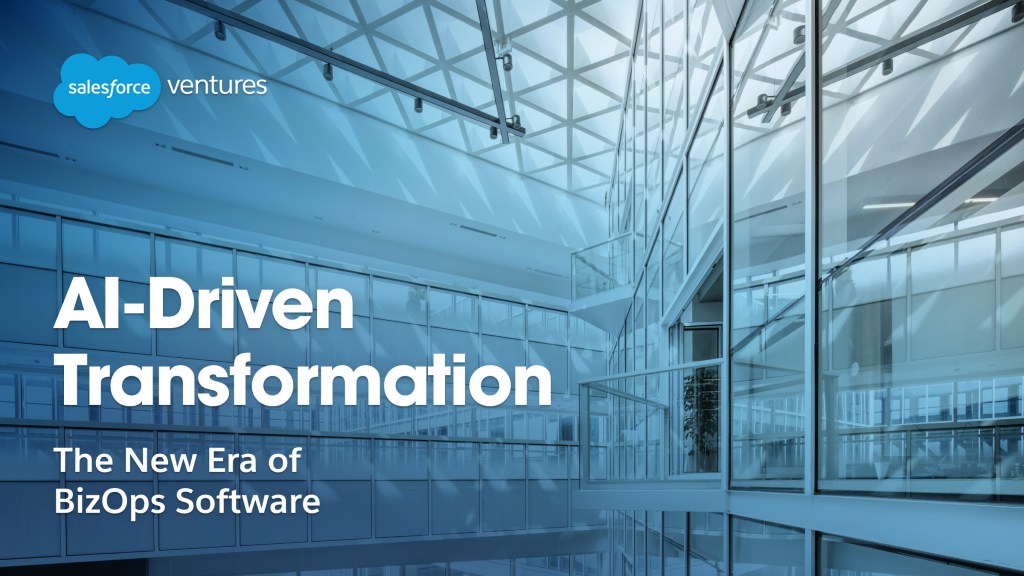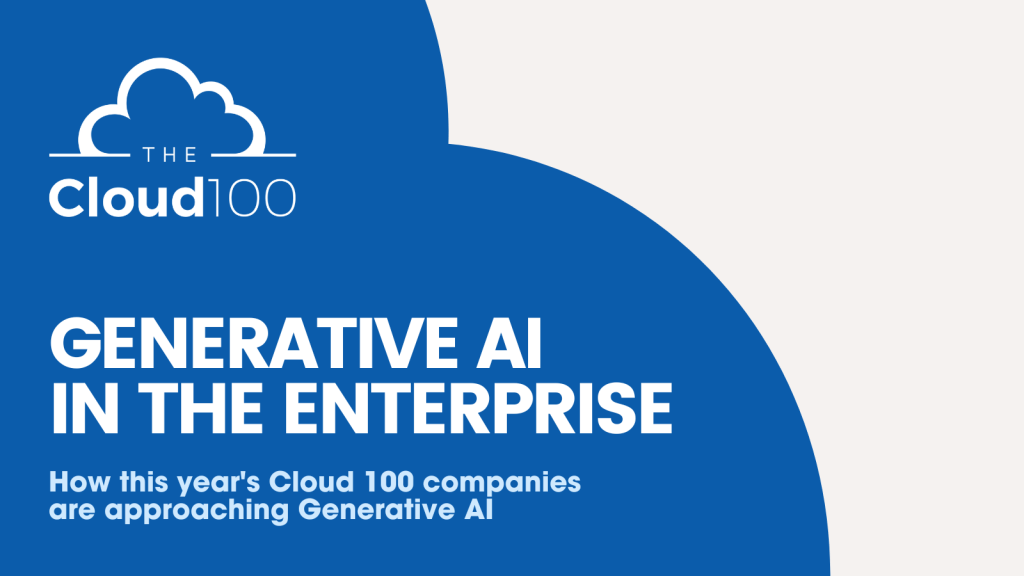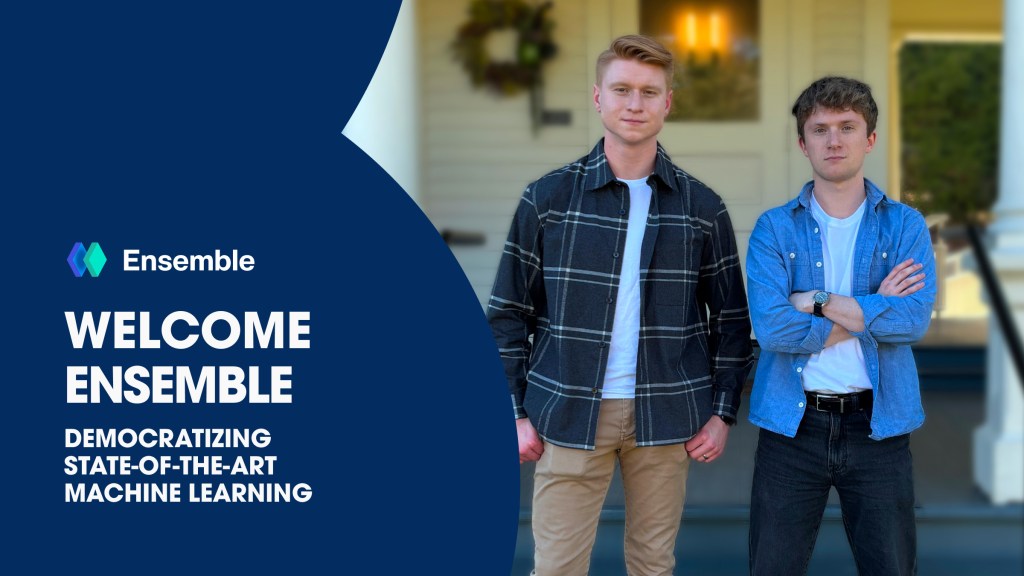By the Numbers: How AI Will Impact Technology Work
A data-driven analysis of the impact AI will have on jobs in the technology sector.
This is a contributed post by Salesforce Ventures portfolio company founder Siobhan Savage.
Executive Summary
Reejig’s data finds that 73% of technology roles will undergo “significant transformation”, while almost all (99%) will see some level of material impact to skills and tasks as a result of AI innovation. Zooming in, current AI tooling is capable of adequately performing at least half of the tasks commonly associated with three different categories of work within the technology sector: cybersecurity, IT support, and software development and engineering. In short, the technology sector is transforming the world with AI while simultaneously being remade by it. Technology founders and executives should view current AI tooling and infrastructure as already capable enough of providing real efficiency and cost savings across a variety of tasks, and should invest in reskilling their current team to deliver new forms of value across a variety of emerging fields.
Ever since ChatGPT emerged on the scene 2.5 years ago, endless ink has been spilled trying to explain the impact AI will have on work and workers. However, few efforts to date have been able to quantify the impact of AI in the workplace.
Until now.
At Reejig, a workforce intelligence platform backed by Salesforce Ventures, we’ve analyzed 41 million unique, validated, proprietary, and public data points from over 130M job records in an effort to understand how AI will impact various jobs across 23 different industries, the resulting workforce shifts, and how enterprises can invest in reskilling.
We call this our “Workforce Reinvention Blueprint,” and it’s among the first analyses to apply metrics to the impact of AI in the workplace to ensure the technology is implemented responsibly1. Here are some of the metrics we’ve developed that help teams quantify and estimate AI’s impact on work and workers:
- AI Potential (%): The raw proportion of a task that can be automated by AI.
- AI Risk Adjustment: A measure of the maturity of existing AI market solutions, and how likely they are to deliver on their promise. The more mature a technology is, the more likely it is to be standardized and the ROI better understood/achieved.
- For roles where AI is mature and low-risk, a score above 0.80 is good.
- For roles where AI is emerging or still requires significant human validation, a score between 0.60 and 0.75 is good
- For high-risk or cutting-edge AI applications, scores below 0.60 indicate significant challenges.
- AI Potential Index Score (AIPI): Measure of the tasks that have the highest potential for AI automation (considers current industry levels of AI adoption as a starting point, as well as the total AI Potential % that could be achieved to estimate the scale of value possible, and then risk adjusts for the maturity of technology currently available [to reflect the likelihood of actually achieving the benefit]).
- An AIPI greater than 1 for any task is worth investigating for a business. An AIPI greater than 2 indicates a generally more mature and reliable solution with much more likelihood of delivering successfully on the opportunity.
- Time to Benefit Realization (TBR): Amount of time in months after AI implementation to start delivering the estimated benefit. This metric ignores the variability of procurement processes, development timelines, and implementation programs to create a comparable measure post-deployment.
- Time Saving: Estimate of the potential reduction in task completion time (as a percentage of total current time spent on the specific task in question).
- Cost Saving: Additional non-time related cost reductions estimated to result from AI implementation, automation, task consolidation, or outsourcing (expressed as a percentage reduction from original cost).
- AI Process Improvement Factor: A qualitative measure representing the benefit from the reduction in process variability and the improvement in consistency due to AI.
- 1.0 = No improvement (AI doesn’t improve consistency or variability).
- 1.1 – 1.3 = Minor improvement (AI reduces errors slightly but doesn’t drastically improve workflow).
- 1.4 – 1.6 = Moderate improvement (AI significantly reduces errors, streamlines decision-making, and ensures more uniform processes).
- 1.7 – 2.0 = Major improvement (AI eliminates most human-induced variability, increases accuracy, and ensures highly consistent outputs).
- 2.0+ = Transformational (AI-driven processes operate near-perfectly, requiring little to no manual intervention).
These metrics enable organizations to make data-driven decisions depending on what’s important to them. For instance, if a team needs to put in place the systems and processes to embed AI in their work, then it makes sense to focus on AIPI — which has a weighting towards the likelihood of successful delivery. If an organization wants to show quick wins related to AI, then TBR can identify opportunities that allow it to demonstrate the quickest value to the organization and generate trust.
“You can use the Reejig platform to look at the jobs in your company and it will give you an accurate picture of ‘what tasks people are doing.’ Microsoft, Macquarie Group, and WPP are now doing this and they all told me the accuracy is amazing.” – Josh Bersin, Industry Analyst
Here we’ll use our data to describe AI’s impact on the technology industry. The tech sector is actively reimagining the world with AI while simultaneously being transformed by it. Our data explains how AI will change the tech sector, quantifies the size of that impact, and explains the path forward for businesses and workers impacted by AI implementation.
AI’s Impact on the Tech Sector
The technology industry is a colossal force in the global economy, forecasted to grow to $6.2T by 2026. At the same time, the tech sector in the AI age is actively confronting a handful of challenges:
- Talent shortage and workforce upskilling: The global shortage of skilled workers in in-demand fields like AI development, cybersecurity, and cloud computing is an impediment to progress. Companies must work to upskill their workforce to remain innovative.
- AI integration and ethics: As AI becomes more integrated into businesses, technology leaders must manage the ethical challenges that come with its profound impact on labor and outputs.
- Cybersecurity and data privacy: With the rise in cyberattacks and the increased reliance on cloud computing, ensuring strong cybersecurity measures is a top priority for tech companies to maintain trustworthiness.
With these challenges in mind, here are the roles in the technology sector that we identified as most capable of being amplified by AI:
Cybersecurity
- AI potential: 49%
- AI maturity risk adjustment: 0.80
- AIPI: 2.0
- Time to Benefits Realization: 6-18 months
- Time saving: 40%
- Cost savings: 30%
- AI process improvement factor: 1.4
Current AI solutions can significantly automate threat detection and response, filling talent shortages in this critical field across network administration, IT support, and hardware technicians. Per our data, 49% of the existing effort spent on tasks associated with cybersecurity analysis roles can benefit from AI, and an AI risk adjustment of 0.80 reflects a high level of solution maturity.
Considering these metrics together generates an AIPI score of 2.0, which is a strong indicator for both likelihood and quantum of benefit realized.
Further, we estimate a TBR of 6-18 months across the range of tasks suitable for AI solutions: some identified AI-driven solutions can deliver tangible benefits related to threat detection within 6 months of deployment.
Once deployed, AI cybersecurity solutions can drive up to 40% time savings and 30% cost savings relative to a human worker, with a process improvement factor (qualitative measure representing the benefit from the reduction in process variability and the improvement in consistency) of 1.4.
Overall, we determined cybersecurity analysis should be a priority for short- and medium-term AI investment by enterprises. AI can mitigate workforce shortages and enhance operational resilience as the complexity, severity, and frequency of cyber threats evolve.
IT and support services
- AI potential: 53%
- AI maturity risk adjustment: 0.85
- AIPI: 3.4
- Time to Benefits Realization: 3-12 months
- Time saving: 50%
- Cost savings: 40%
- AI process improvement factor: 1.5
On the IT side, AI is primed to automate a large portion of routine IT support queries, drastically reducing the need for human intervention across IT support specialists, data entry, and software management. Our data estimates that 53% of time spent on IT support tasks can currently be performed by AI, with an AI risk adjustment of 0.85.
This amounts to a strong AIPI of 3.4. Data entry and reporting are examples of tasks primed for AI automation, which our data indicates can be performed 58% faster by leveraging AI.
According to our data, some IT support tasks have a TBR of less than 6 months, meaning AI solutions like chatbots and automated ticketing systems can rapidly deliver substantial efficiency gains. Once deployed, AI IT solutions can drive up to 50% time savings and 40% cost savings, with a process improvement factor of 1.5.
Overall, the potential for automation in IT management and support is high, and the short time to benefit indicates a quick return on investment.
Software development and engineering
- AI potential: 62%
- AI risk adjustment: 0.7
- AIPI: 1.87
- Time to Benefits Realization: 6-12 months
- Time saving: 50%
- Cost savings: 40%
- AI process improvement factor: 1.42
Routine tasks like debugging, testing, database admin, and code generation are increasingly automated using tools such as GitHub Copilot, CodeGuru, and similar AI solutions. Our data estimates 62% of the effort spent on software development and engineering tasks can currently be performed by AI, with an AI risk adjustment of 0.7.
The result is an AIPI of 1.87. AI tools applicable across the spectrum of software development tasks are moderately mature (and improving quickly), requiring human oversight for higher-level tasks such as architecture design and complex problem-solving.
There is a range of solutions that can deliver value between 6 and 12 months. Once deployed, AI solutions for software development can enable 50% time savings and 40% relative engineering cost, with an AI process improvement factor of 1.42.
_
Overall, we believe 73% of technology roles will undergo “significant transformation,” while almost all (99%) will see some level of material impact to skills and tasks as a result of AI innovation. While machine learning and predictive models have been increasing their foothold over time, the recent significant increase in anticipated impact is driven by the general availability of cloud AI infrastructure, large language models, and emerging agentic frameworks.
Reskilling Affected Workers
Based on the types of tasks impacted by AI, the associated skills required to perform these tasks, and the continued acceleration of AI development, cloud adoption, and cyber threats, we foresee the following in-demand roles as the most direct paths for labor reskilling for affected workers in each respective field2:
- Cloud Infrastructure Engineer
Designs, deploys, and maintains cloud-based systems for scalability, security, and reliability. Optimizes cloud operations and costs.
Key Skills: Cloud platforms (AWS, Azure, Google Cloud), networking, IaC (Terraform), automation, security.
Reskilling Pathway: IT support specialists transition well due to their experience in troubleshooting, system administration, and network management.
- Data Analyst
Collects, processes, and analyzes data to provide insights that drive business decisions.
Key Skills: Data visualization (Power BI, Tableau), SQL, Excel, Python/R for statistical analysis.
Reskilling Pathway: Data entry clerks transition well due to their experience handling structured data, ensuring accuracy, and working with databases.
- Project Coordinator
Supports project managers by organizing schedules, tracking progress, and managing documentation to keep projects on track.
Key Skills: Project management tools (Jira, Trello, Microsoft Project), organization, communication, Agile/Waterfall.
Reskilling Pathway: Administrative assistants transition well due to their expertise in scheduling, document organization, and stakeholder communication.
- Automation Engineer
Develops and maintains automated testing frameworks to improve software quality and streamline testing.
Key Skills: Programming (Python, Java, JavaScript), test automation (Selenium, Cypress, Appium), CI/CD, DevOps.
Reskilling Pathway: Junior Software Testers transition well due to their experience in manual testing, debugging, and QA processes.
Salesforce Ventures Perspective
“Reejig’s data-driven approach to quantifying AI’s impact on work exemplifies why Salesforce Ventures is investing $1B in companies charting the future of responsible AI implementation. Across our portfolio, founders and executives are looking for ways to responsibly implement AI and reap the benefits of this powerful technology. Reejig’s Workforce Reinvention Blueprint doesn’t just theorize about AI’s potential — it provides enterprises with the metrics and frameworks they need to make strategic decisions about human and AI collaboration, creating measurable value while ensuring no one is left behind in this transformation. We foresee data-driven approaches to AI transformation becoming the de facto way organizations reimagine their operations for the AI age.” – Rob Keith, Partner
The Future of AI-Driven Tech Work
AI is changing the very fabric of work itself, and we’re standing at a once-in-a-generation opportunity to boldly reinvent how work gets done. Companies that embrace this shift have the chance to reengineer their workforce, unlocking new levels of innovation and productivity. But this transformation must be done responsibly — ensuring that as we automate, we also reskill, so no one is left behind. The greatest opportunity of our time is here, and the organizations that act decisively will shape the future.
For more on Reejig, visit our website >>>
To get Salesforce Ventures content delivered straight to your inbox — including the latest AI insights — sign up for our monthly newsletter.
About the Author
Siobhan Savage is the CEO and Co-founder of Reejig, where she pioneered the world’s first AI-powered Work Operating System — a work intelligence platform that helps enterprises re-engineer jobs, optimize work allocation, and align AI adoption with reskilling. Siobhan is an award-winning workforce futurist and global AI expert, recognized as a World Economic Forum Technology Pioneer, a Forbes Cloud 100 Rising Star, and a Top 100 HR Tech Influencer by HR Executive. Siobhan is committed to helping global companies navigate AI-powered workforce transformation while advocating for responsible adoption that empowers, rather than replaces, human potential. Her insights on responsible AI adoption are regularly featured in Fortune, Forbes, and The Wall Street Journal. Based in New York City, with roots in Canada, Ireland, and Australia.
1 Reejig’s analysis is built on a dataset of over 41 million unique, validated job and roles data points, deduplicated from over 130 million processed job records related to the most recent 5 to 7 years. These postings span 100+ countries and over 20 industry sectors, offering a dynamic and current view of workforce trends. The dataset integrates insights from leading labor market platforms, publicly available job boards, government labor statistics, industry reports, regional and industry-specific standards, and proprietary client data. Each one has been validated by workforce strategists before being fully integrated, ensuring the highest quality of data and insights.
2Reejig considers the individual and the future of work:
- The target roles are more secure career paths aligned with managing AI and automation work processes
- The relevance to the “impacted role” is based on the existing skill set already being transferrable or adjacent to required skills, along with new skills being aligned with some elements of the individual’s capability








